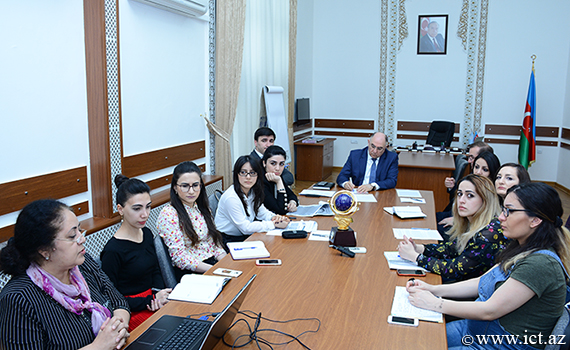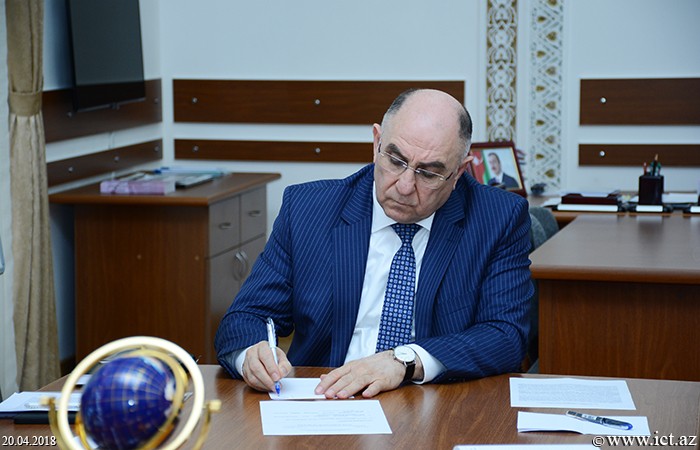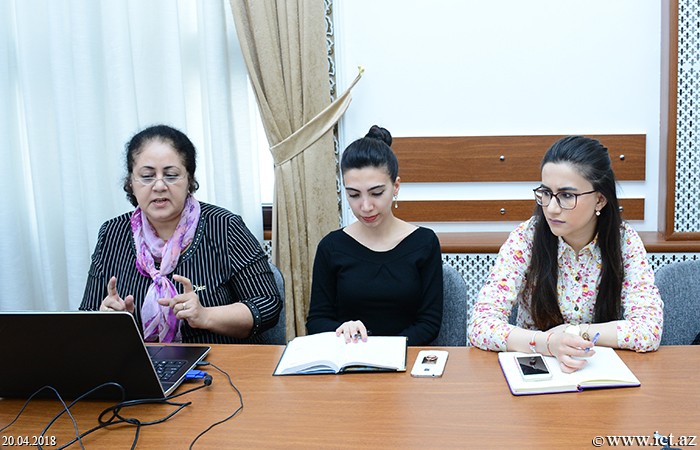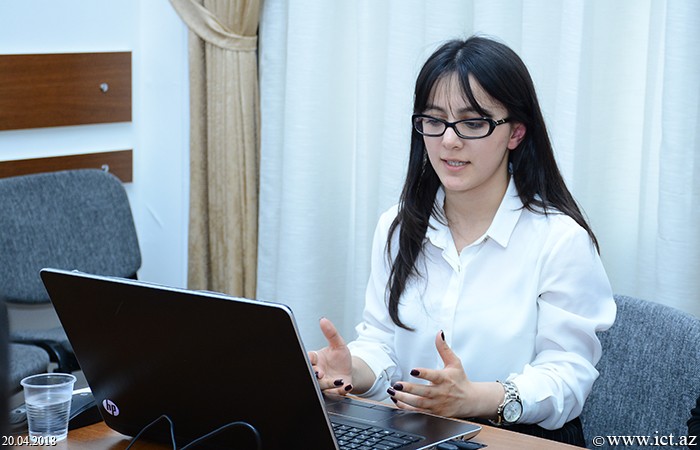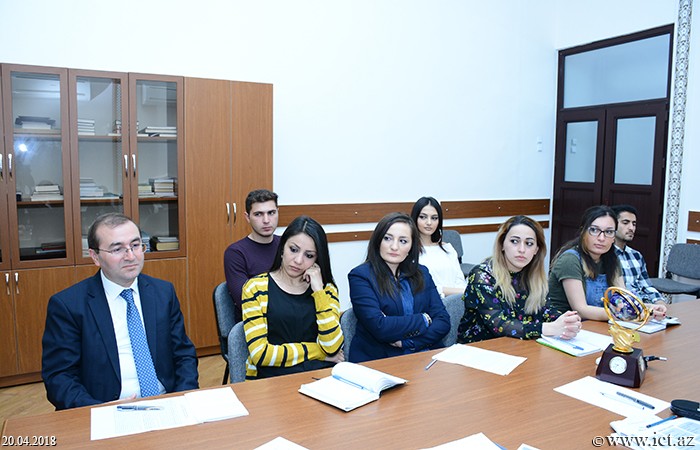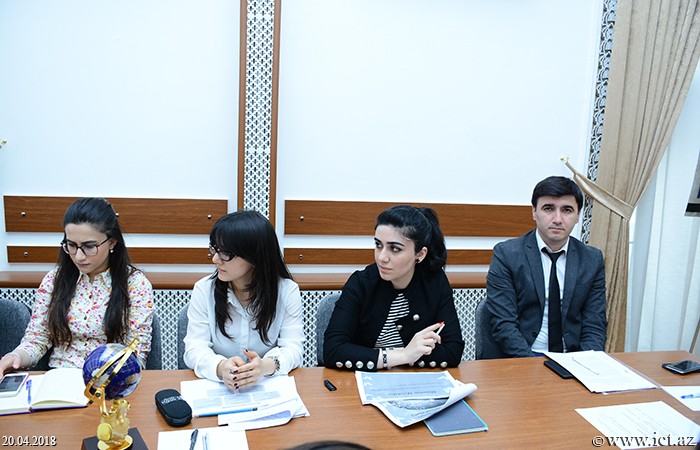Next scientific seminar of Department No.17 of Institute of Information Technology of ANAS was held. Academician-secretary of ANAS, director of the institute, head of the department, academician Rasim Alguliev emphasized the necessity of regular organization of such seminars in terms of increasing the efficiency and continuity of scientific research works. He said that the tasks of the department's annual action plan should be consistently implemented, and articles should be published as a result of scientific research and young personnel should be supported in this regard.
Then, Irada Alakbarova, the senior specialist of the institute, presented the report on "The role of social credit system in e-government environment". She gave information about the reasons for the process of stratification in the modern society, including credit assessment, credit rating and so on..
Speaking about the capabilities of the social credit rating and the existing models for its evaluation, the speaker spoke about the features, importance and prospects of the widely used FIO method in the world today.
I. Alakbarova informed about the negative and positive factors in the assessment of the social credit rating and the possibilities of the Chinese Social Credit Score (SCS) system. Speaking about the SCS project's history, conceptual model and working principle, she noted that the main five factors in the algorithm used in the system are credit history, the ability to fulfill obligations, personal information, behavior, interests and social responsibility.
The rapporteur also informed about existing problems and perspectives on the assessment of social credit rating.
Academician R. Alguliev noted that today's research on social credit system is of great urgency. He said that the assessment of citizens through the social credit system is one of the issues attracting the attention of many countries in the world regarding socio-economic events.
The scientist recommended the study and analysis of existing approaches and intelligent systems around the world in connection with the problem. He also emphasized the need to use mathematical modeling methods and new technologies during the research.
Later, Gulnar Najafova, a representative of the Department No.17, made a presentation on "Methods for Detecting Personal Relationships in the E-Government". She provided information on classification of relationships, approaches used for this purpose, and approaches to identify their sources.
The speaker drew attention to some of the approaches that are used to visualize the social relationships and the approaches to detect and filter out positional social relationships.
G.Najafova said that the intellectual system intended for the detection of relations based on the personal data of citizens can be used during sales, credit and risk assessment, foreign travel, as well as recruitment.
Academician R. Alguliyev gave some recommendations regarding the report. He highlighted the importance of study of the theory of sociology and graphs to get scientific results on the detection of personal relations of people in the e-government environment and research of available scientific studies related to detect social networks.
At the end of the meeting, a wide exchange of views was held on the reports, and many questions were answered.
© All rights reserved. Citing to www.ict.az is necessary upon using news

